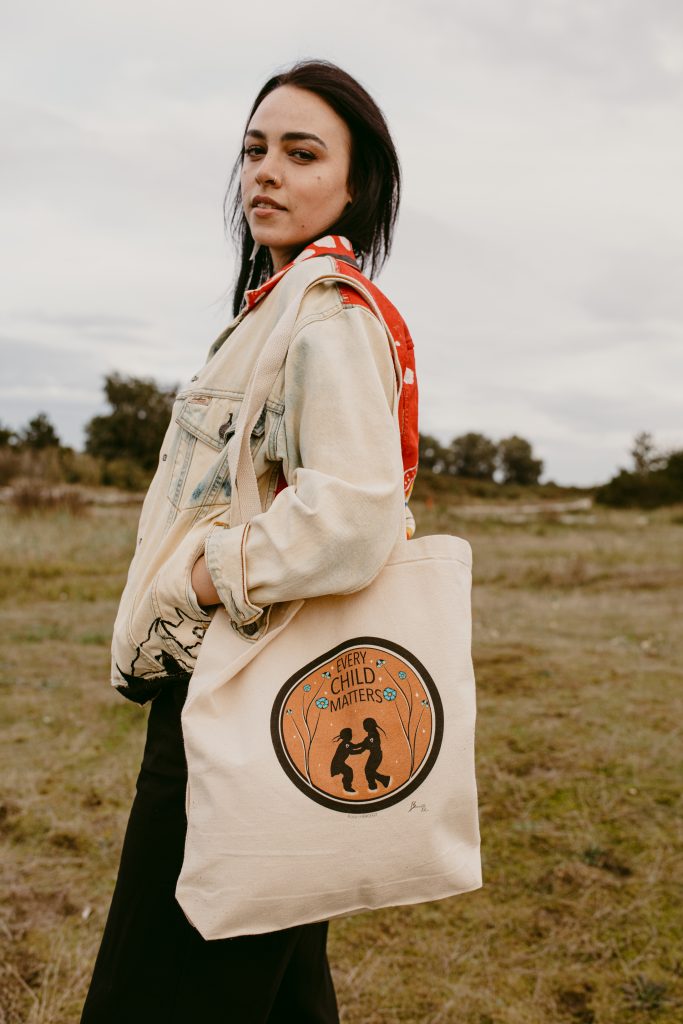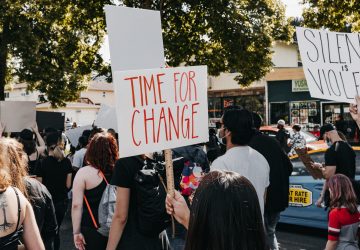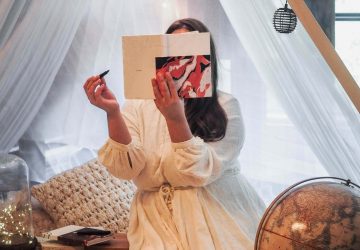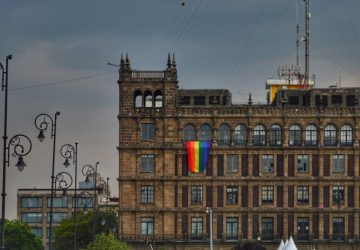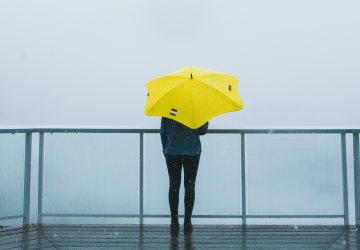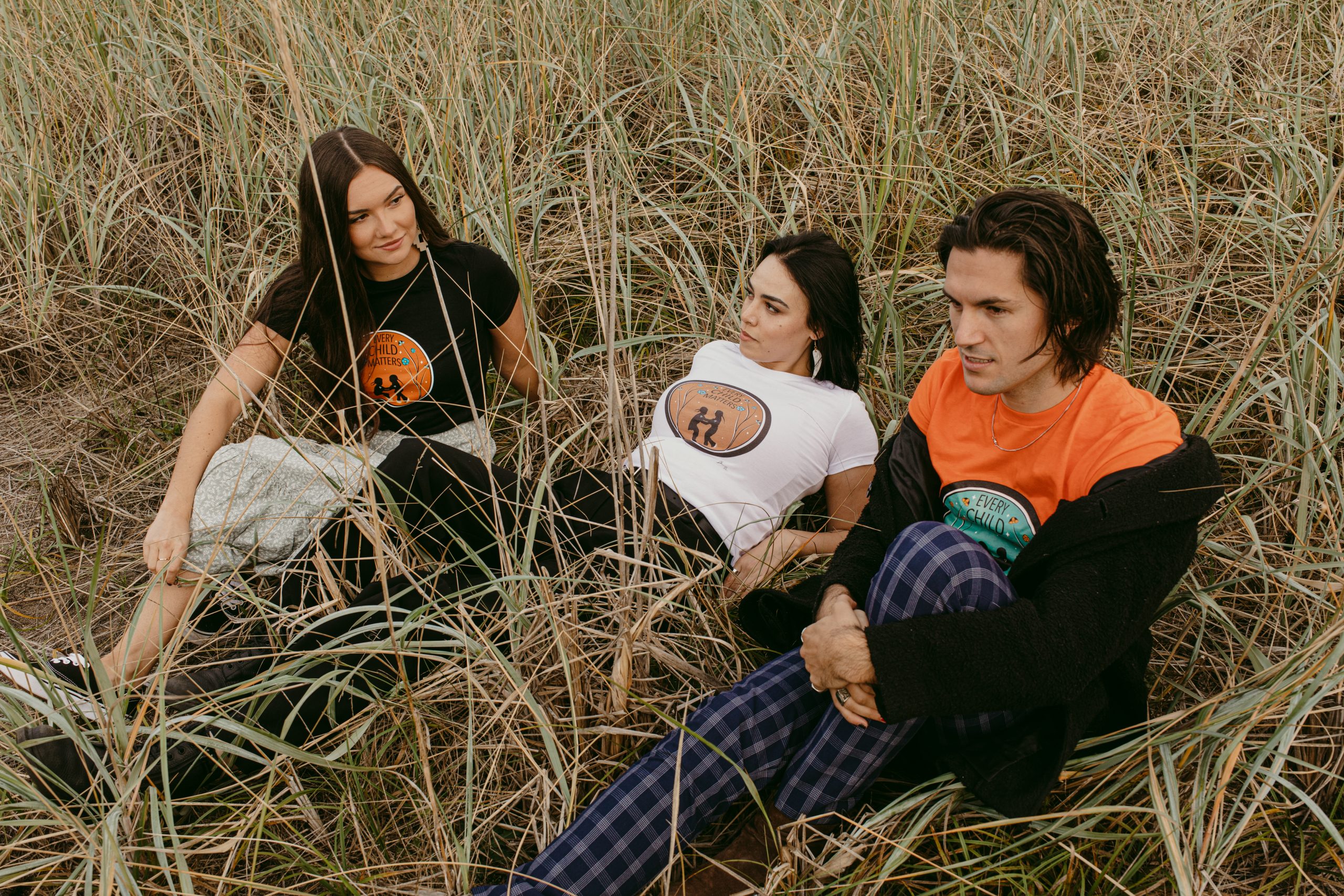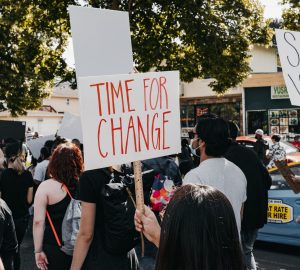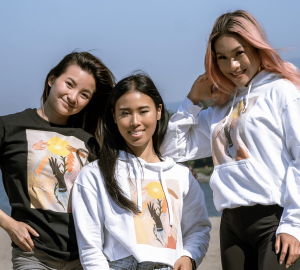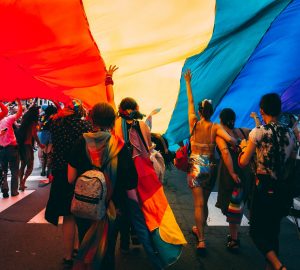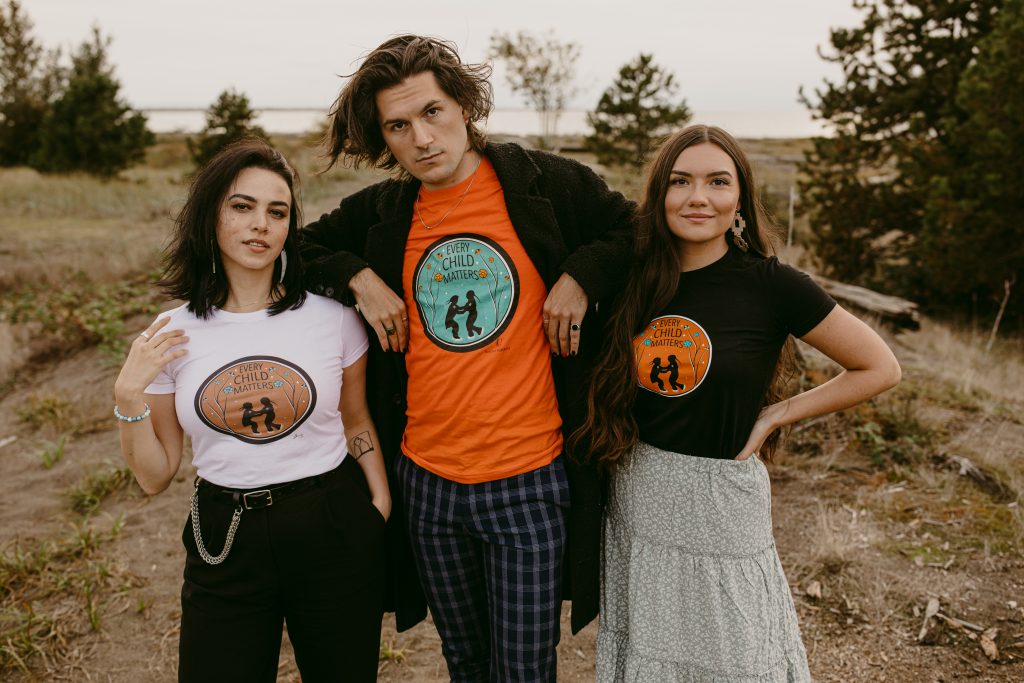
If you’re a Kosan customer or follower then you know that we care very deeply about people. We do what we can as a small business to inspire change makers and mobilize people to take action on the injustices in this world. If you follow the media in any regard then you know that recently there have been hundreds and hundreds of children’s bodies recovered from Canadian residential schools. The Every Child Matters movement may be news to you, but this is not news to the Indigenous communities who have been fighting for their lost children for decades. Our goal at Kosan is to give a platform to people and cultures who have been silenced for so long, and allow them to shout and finally be heard.
With this in mind, in Collaboration with Kayla Todd (Bearskin Designs) and in preparation for Orange Shirt Day, September 30, we have created the Every Child Matters Collaboration. Every profit made from this release will go to the charity of Todd’s choosing: Indian Residential School Survivors Society.
Interview With Bearskin Designs
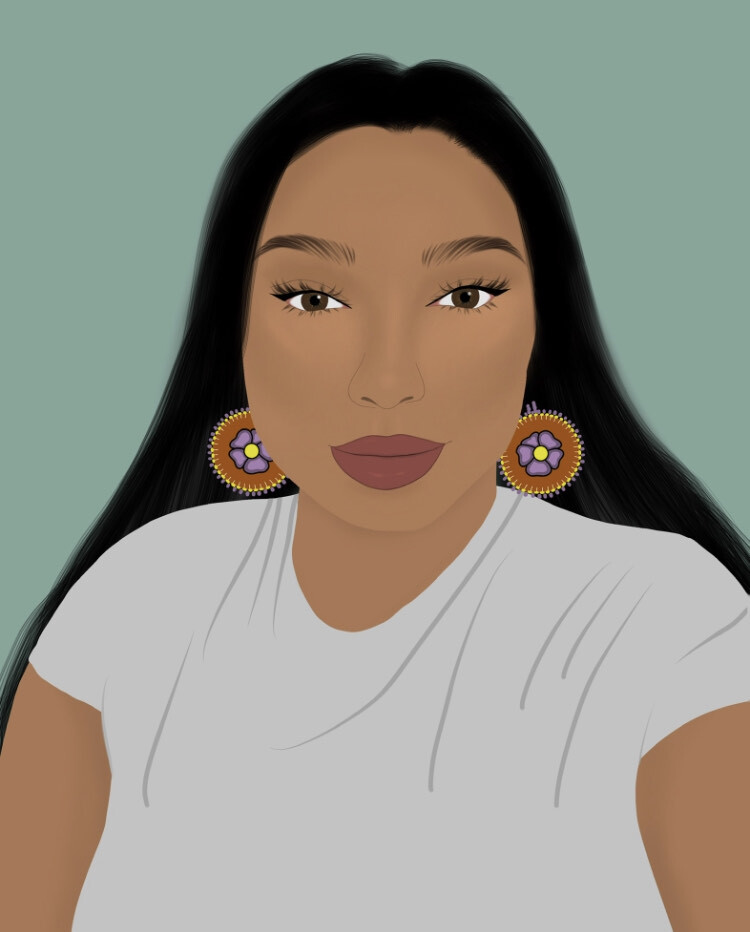
1. Where are you from? (Country, city, band)
I am from canada, residing in Nova Scotia but I was born in Ontario. I am Onyota’a:ka (Oneida) of six nations/Iroquois and my band is Grand River, however I am governmentally known as a status Kanienkehaka (Mohawk).
2. What is the most beautiful thing about your culture?
I think one of the most beautiful things about my culture is our “thanksgiving address” which is something that is done when we start our day or during a gathering when we come together. We say it in our language but basically we will thank the creator whom has given us all things crucial to survival, including Mother Earth, water, tobacco, foods, medicines, trees, animals, sun, rain, moon and many more things, but it’s a very long and sacred prayer to recite. It’s supposed to keep us humble and puts our minds at peace for us to carry out all of our daily tasks and it also reminds us how grateful we should be for these amazing gifts! I haven’t quite learned how to say it in our language without help yet but it’s still so beautiful even listening to it.
3. What does “Every Child Matters” mean to you?
I believe “Every Child Matters” is to first off, spread awareness on residential schools and to honour those who have endured so much trauma from them and to remember the ones who’s lives where taken. For me it is also a reminder to protect our children because they are the ones who will be leading the future, children are sacred and we need to keep them safe because we pass down our traditions to them.
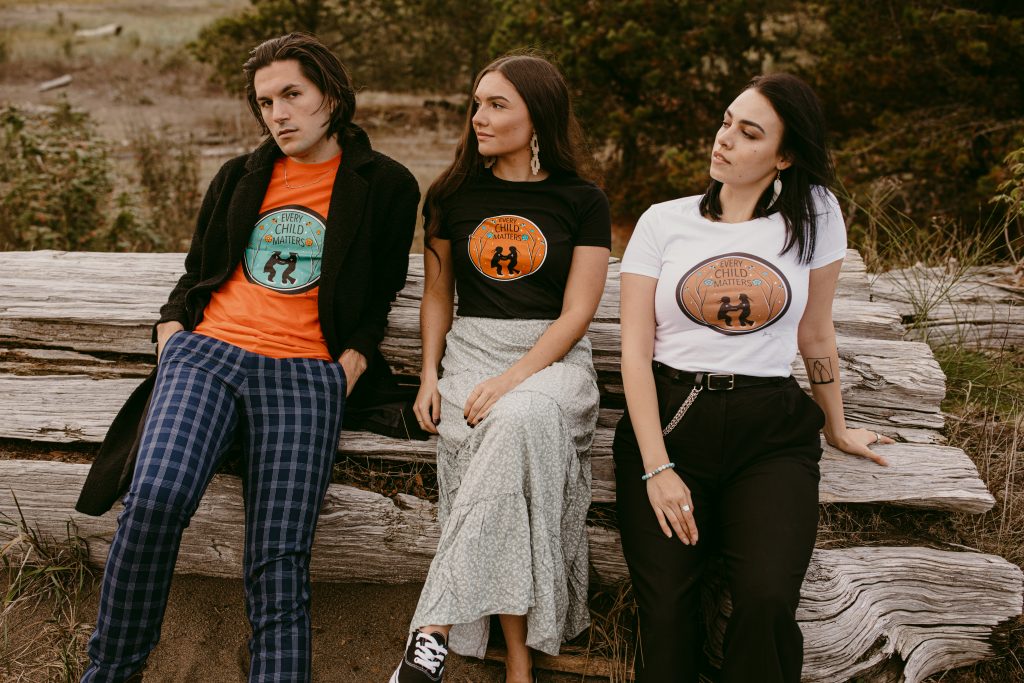
4. Have you ever been a victim of racism or prejudice and if so how has it effected you?
I haven’t experienced very much out right racism or prejudice fortunately, I have had a few little run ins with people making snide comments. I don’t ever let it effect me too much because at the end of the day, I’m very proud to be who I am. I’ve had people close to me experience racism and prejudice, when my sister was a child she remembers in school people saying to her that she has “poop brown skin” which might not seem so bad but growing up hearing things like that as a kid can really effect your self image and self esteem. I also have a friend who I used to work with at a gas station experience some very scary comments, older men yelling at her and charging into the gas station at her saying very racial slurs, this all happened because I believe she asked them not to be on the phone while pumping gas. (This was a rule we had to enforce while working there)
5. How does the sudden rise of media attention on residential schools make you feel?
The sudden rise of media attention with residential schools has definitely caused a lot of emotions. On one hand a lot of us are saying “finally people believe us” and on the other it’s very traumatic and there’s a lot of grieving going on. It can be hard to stay positive, especially as an indigenous person to open up social media every day and see more and more children being recovered. While I’m very grateful that lots of awareness is being spread, it’s also made it very tough sometimes and I couldn’t imagine how survivors are feeling right now. I hope that all of the media attention will truly cause some positive changes surrounding this topic and our lives as indigenous people. One positive change I would love to see from all of the media attention would be, funding for tribes to be able to govern their own child welfare systems. In 2016 in Canada over 50% of children under 14 in the system are indigenous, while it was also reported in 2016 that indigenous people only make up 4.9% of the population.
6. Here at Kosan we believe that travelling and appreciating/learning about other cultures is pivotal in the fight against racism; are there any beliefs/values/practices from your culture that you hold close to your heart and would like to share?
I would love to share “the seven grandfather teachings” with everyone.
We have 7 animals that represent an individual teaching, the animals include..
Eagle – Love
Buffalo – Respect
Bear – Courage
Sabe – Honesty
Beaver – Wisdom
Wolf – Humility
Turtle – Truth
And if you look these up https://www.southernnetwork.org/site/seven-teachings there are amazing teachings that go along with each one. My favourite teaching is the Eagle, it’s supposed to represent love because for 1, eagles mate for life, but also the fact that eagles unlike other birds will fly above a storm to avoid it. They are just such powerful creatures and I personally think that love is one of the strongest forces to be reckoned with just like the eagle.
7. What nonprofit/charity would you like to make the donation of the profits to? Why did you pick this one?
I would like to donate to the “Indian Residential School Survivors Society” I chose to donate to them because they have such a wide variety of resources/services, this includes counselling, health support, cultural support, intergenerational trauma support and so much more. They have been providing services for over 20 years towards residential school survivors and they have a crisis line 24/7 at (1-800-721-0066) too. I also noticed that they post articles that spread awareness and educate people on residential schools and important issues going on in our communities too.
8. Where is your favourite place you have ever travelled?
I would have to say Nova Scotia, I moved here about 10 years ago and it’s just been so beautiful. There’s always so many sights and experiences in Nova Scotia including gorgeous ocean views and lots of wholesome little towns on the countryside.
9. Where should one travel to experience your culture best?
I would say Ontario in Canada during powwow season. Powwows are one of our only public events and it can be a great place to ask questions and learn!
10. What is your favourite food and practice from your culture?
My favourite food in my culture would be three sister soup or just the 3 sisters in general (corn, beans and squash) I also love and would recommend trying Navajo tacos but it doesn’t technically come from my culture! I’m not quite sure if I have a favourite practice but I love creating beadwork and listening to stories. In my culture story telling is very important and sometimes how we teach and learn. One of my favourite stories would have to be our creation story of course, this story is meant to serve as a reminder that no human is flawless. It’s a very unique but beautiful story, you can read a learn about it here https://www.oneidaindiannation.com/the-haudenosaunee-creation-story/ (note: there are many different versions of our creation story depending on who is telling it, but they are all along the lines of this).
Shop our Every Child Matters collection now to prepare for Orange Shirt Day, September 30!
